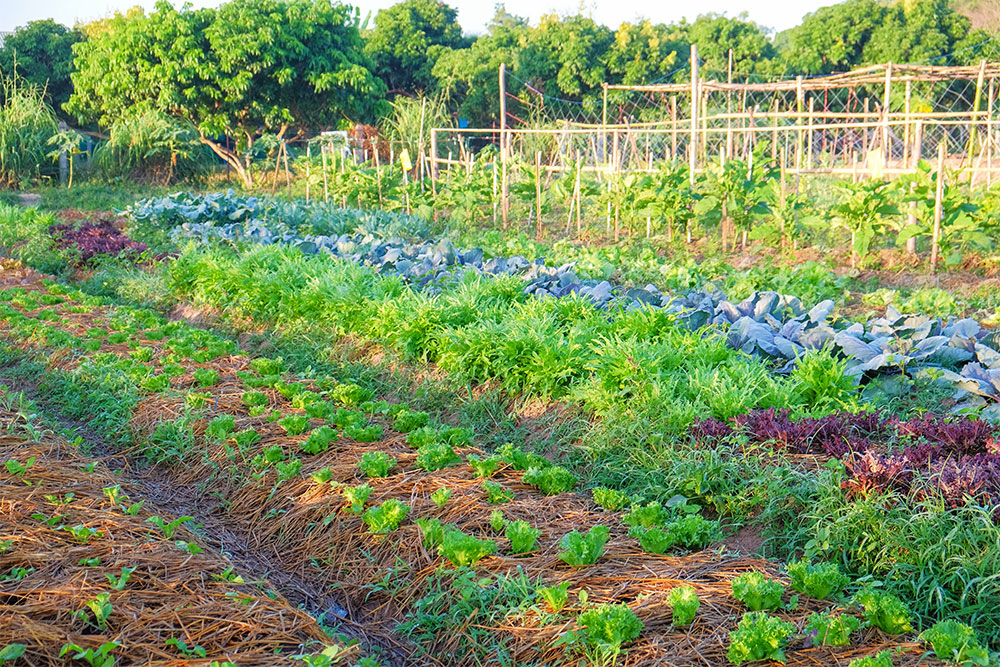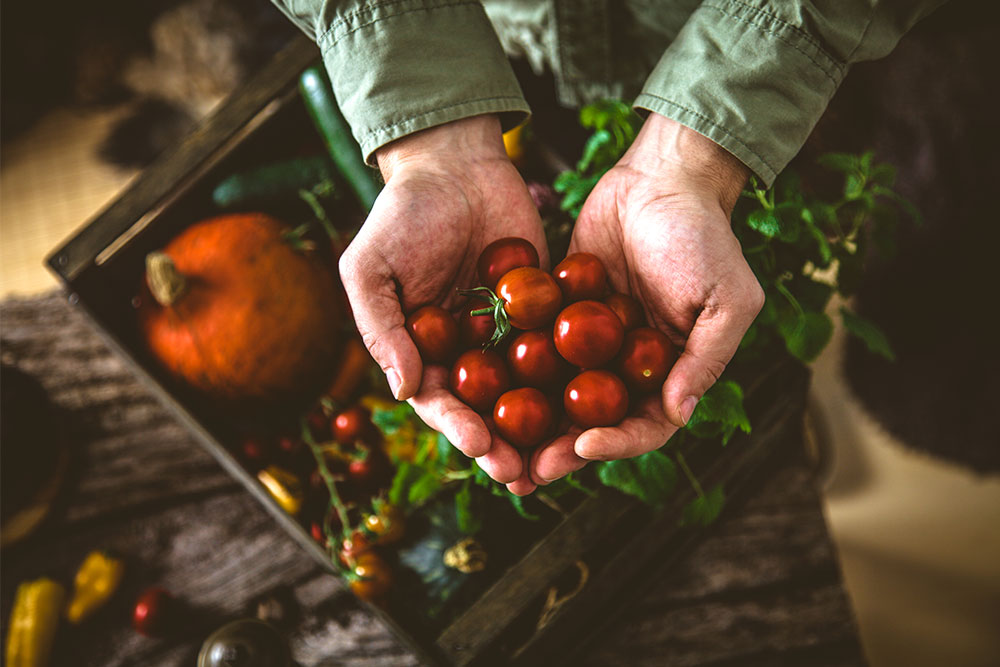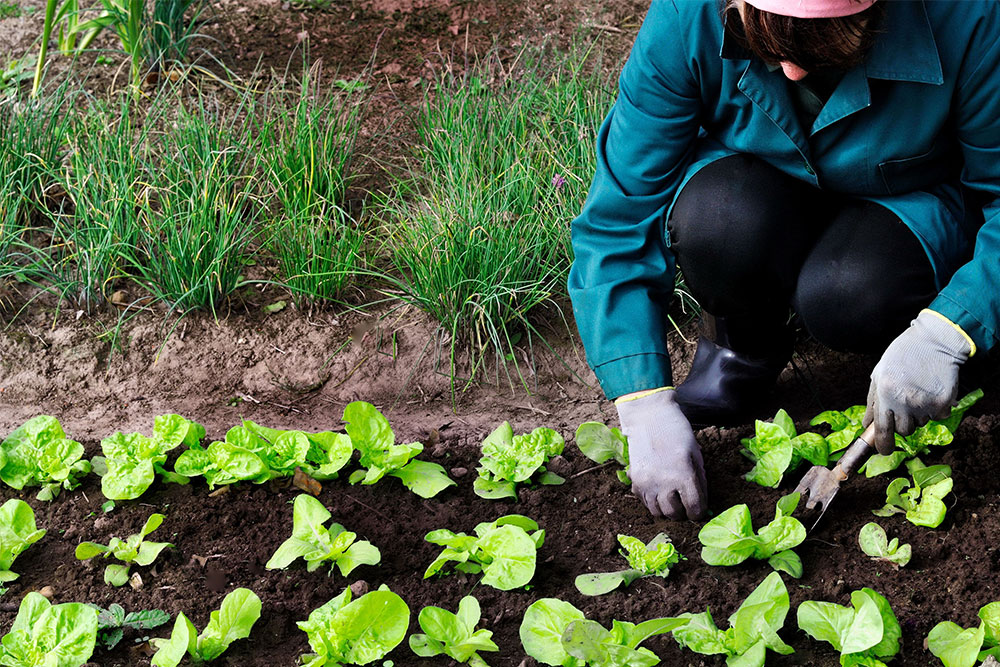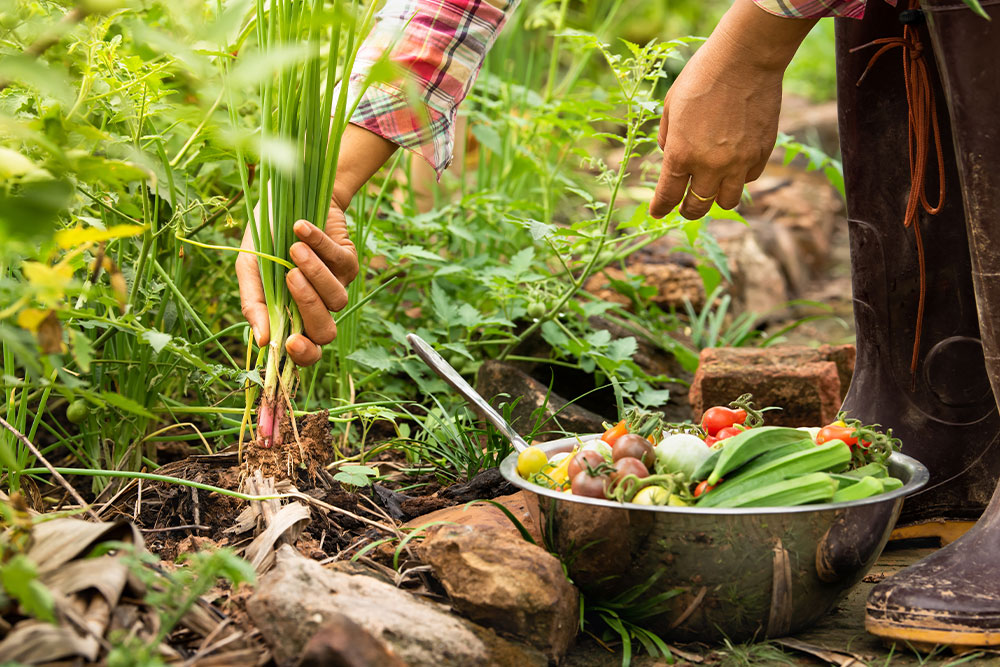While scrolling through your social media, or seeing advertisements—whether on television, billboards, radio or newspapers—you may have come across the term ‘organic farming’ being used time and again. It is no secret that there are a lot of chemicals in the food we consume. And this where organic farming comes in. While it is not a recent term, it has gained popularity in the last decade as people are making a conscious change in how they live. That being said, there’s a lot that needs to be understood about this method of farming, let’s have a look at what we’ve got.
What is it?
Organic farming is a technique that entails growing plants and raising animals in a natural environment. To preserve soil fertility and ecological balance while minimising contamination and waste, this method employs biological materials while avoiding synthetic substances, such as chemical fertilisers. Crop rotation, green manure, organic waste, biological pest control, mineral and rock additives are all examples of ecologically balanced farming values. Pesticides and fertilisers are used in organic farming if they are considered natural, but petrochemical fertilisers and pesticides are avoided.
The aim of organic farming is described by the International Federation of Organic Agriculture Movements (IFOAM), an international organisation for organic farming organisations established in 1972. It says: “Organic agriculture is a production system that sustains the health of soils, ecosystems and people. It relies on ecological processes, biodiversity and cycles adapted to local conditions, rather than the use of inputs with adverse effects. Organic agriculture combines tradition, innovation and science to benefit the shared environment and promote fair relationships and a good quality of life for all involved…”

Principles
There are four basic principles of organic farming. They are:
1. Health
Organic farming should benefit the health and well-being of the soil, plants, livestock, people, and the environment. It is the preservation of one's emotional, physical, ecological, and social health. For example, it protects humans from contamination and provides chemical-free, nutritious food.
2. Ecological Balance
Organic agriculture should be based on living ecological systems. Organic farming practices must be compatible with natural ecological balances and cycles.
3. Fairness
Maintaining equality and justice of the common world among humans and other living beings demonstrates fairness. Organic farming improves people's lives and aims to alleviate hunger. Natural resources must be used wisely and kept safe for future generations.
4. Care
Organic farming should be done with care and responsibility to support current and future generations as well as the community.

Difference between organic and conventional method of farming
Organic farming, unlike modern and traditional farming practices, does not rely on synthetic chemicals. It makes use of natural, biological methods to improve soil fertility, such as boosting plant nutrition through microbial activity.
Second, organic farming's multiple cropping increases biodiversity, which improves sustainability and durability while also contributing to a sustainable farming environment. Mono-cropping is used in traditional farming systems, which depletes soil fertility.
Benefits
There are many benefits of organically grown crops, vegetables, and fruits. Some of them are:
1. Improved nutrition
Natural food is much richer in nutrients than conventionally grown food because it has been grown for a longer period of time. The mineral and vitamin content of a food item determines its nutritional value. Organic farming improves soil nutrients, which are then passed on to plants and animals.

2. Maintains health
Chemicals are not used in organic foods. This is because, unlike their commercial counterparts, organic farmers do not use pesticides at any point of the food-growing process. Natural farming methods are used by organic farmers to ensure that humans and the environment are not harmed. These foods help to prevent diseases such as cancer and diabetes.
3. Improved taste
The taste of food also influences its consistency. Organic food is often superior to other foods in terms of taste. Organically grown fruits and vegetables contain natural sugar, which gives them a richer flavour.
4. Increased shelf–life
Organic plants have a cellular structure that is more metabolically and structurally sound than traditional crops. This allows organic food to be stored for longer periods of time.
5. Non-poisonous
Poisonous chemicals and weedicides are not used in organic farming. According to studies, a significant portion of the population exposed to poisonous chemicals used in conventional agriculture has developed diseases such as cancer. Since organic farming prevents these contaminants, the number of illnesses and diseases caused by them is reduced.

Drawbacks
1. Charges
The high costs of organic farming are one of the most significant drawbacks. Since pesticides are not used, the crops are much more susceptible to pests and diseases. Since much of the work is done by hand, organic farming can be very labour intensive. Natural food is more costly than conventionally grown fruits and vegetables because these costs are passed on to the consumer.
2. Certification method
Farms must be approved by a government organisation in order to be certified as organic. For organic farms, this means that they must employ an organic certifying agent to ensure that their farming practises comply with the authorised organic standards. The initial authorisation fee can be costly, and there is also an annual certification fee.
3. Localised agricultural systems
The farmer's skills, experience, and wisdom all play a role in the quality of the organic crop produced. The farmer must track crop growth trends at any point of crop growth in organic farming (and even farming of fruits and vegetables in general). If a farmer fails to recognise a problem with their crop, the crop's value will suffer.

The takeaway
Organic farming, with its various benefits is not only a healthier option, but is also safe for the environment. As a consumer, knowing where your food comes from is extremely important. However, if you’re looking to get into the business of organic farming, it is advisable to get an expert on-board who can help minimise the costs wherever possible, and also help with the certification process.